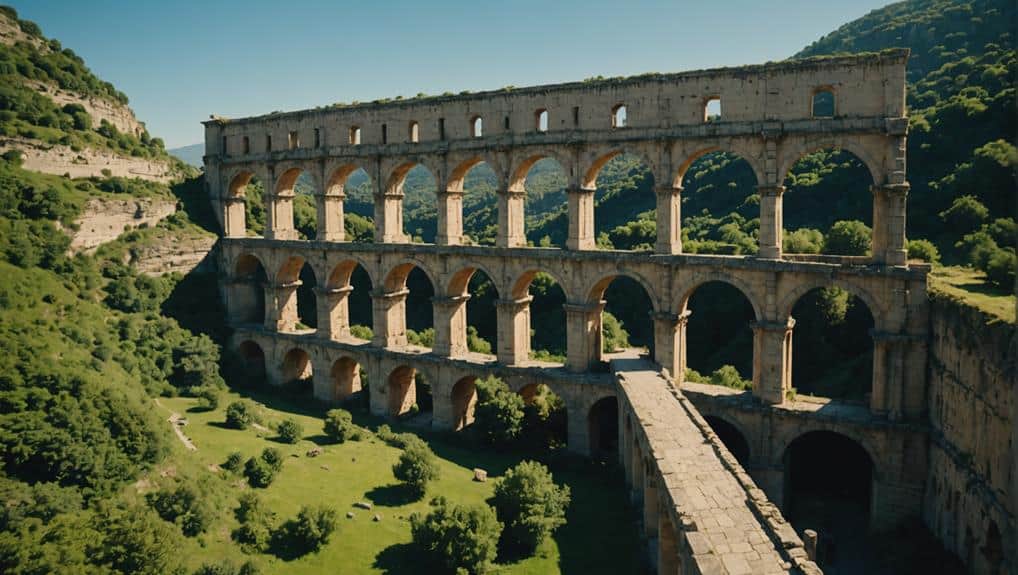Classical Antiquity, a term that broadly encompasses the centuries-long period of cultural history centered around the Mediterranean Sea, spans from roughly the 8th century BC to the 6th century AD. This era is marked by the rise and fall of significant civilizations, including the Greeks, Romans, Byzantines, and Persians, each contributing profoundly to the development of Western civilization.
This epoch witnessed the flourishing of art, literature, philosophy, and political thought, laying the foundations for much of Western culture and intellectual traditions. The innovations and ideas from this time period continue to influence contemporary society, from democratic principles to architectural styles.
The legacy of Classical Antiquity is not confined to the realms of culture and intellect; it also encompasses remarkable advancements in technology, engineering, and governance. The strategic military campaigns, vast trade networks, and sophisticated administrative systems established by these ancient civilizations set enduring precedents for future generations.
In exploring Classical Antiquity, we delve into the rich and complex histories of four major cultural and political entities: the Greek city-states and their philosophers, the expansive Roman Empire, the resilient Byzantine Empire, and the influential Persian Empires. Each of these civilizations offers unique insights into the human experience and the evolution of society over centuries.
By examining these remarkable periods and their lasting impacts, we gain a deeper appreciation for the achievements and lessons of our ancient predecessors, whose legacies continue to shape our world today.
Greece: City-States and Philosophers
Ancient Greece was characterized by a collection of city-states, or poleis, each with its own unique government, culture, and traditions. Prominent city-states such as Athens, Sparta, Corinth, and Thebes played crucial roles in Greek history. Athens, known for its democratic governance and cultural achievements, and Sparta, famous for its military prowess and austere society, exemplify the diversity of Greek political systems. Daily life in these city-states included a strong emphasis on education, religion, and community engagement, with citizens actively participating in public affairs and cultural activities.
Greek philosophers such as Socrates, Plato, and Aristotle laid the foundations of Western philosophy, ethics, and science. Socrates’ focus on ethics and the Socratic method, Plato’s establishment of the Academy and his works on political philosophy, and Aristotle’s contributions to various fields of knowledge significantly influenced intellectual thought. Other notable philosophers, including Pythagoras, Heraclitus, and Democritus, also made remarkable contributions, shaping the course of philosophical inquiry and scientific discovery. Their ideas and methods continue to impact modern thought and academia.
Roman Empire: Expansion and Decline
The Roman Empire’s expansion began with the foundation of the Roman Republic and its early conquests, which included defeating Carthage in the Punic Wars and subjugating territories across Europe, Africa, and Asia. The empire’s infrastructure, such as the extensive road network and architectural marvels like the Colosseum, facilitated its growth and cohesion. Key figures like Julius Caesar and Augustus played pivotal roles in transforming Rome from a republic to a mighty empire, characterized by a centralized administration and a well-organized military.
The decline of the Roman Empire was a gradual process influenced by internal and external factors. Political instability, economic troubles, and military challenges weakened the empire from within, while barbarian invasions and pressures from groups like the Huns exacerbated its vulnerabilities. The division of the empire into Eastern and Western halves, with the Western Roman Empire ultimately falling in 476 AD, marked the end of ancient Rome’s dominance and the transition to the Middle Ages. Despite its fall, the legacy of the Roman Empire profoundly shaped Western civilization.
Explore the rise and fall of the Roman Empire and its lasting impact on the world!
Byzantine Empire
The Byzantine Empire, also known as the Eastern Roman Empire, continued the legacy of Rome after the fall of the Western Roman Empire. Centered around its capital, Constantinople, the Byzantine Empire was a bastion of culture, commerce, and military strength for over a millennium. Key emperors such as Justinian I, who codified Roman law and built the Hagia Sophia, Heraclius, who reorganized the military and administration, and Basil II, known for his military conquests, played crucial roles in its history. The strategic location and formidable defenses of Constantinople enabled the empire to withstand numerous sieges and invasions.
Religion, particularly Eastern Orthodox Christianity, profoundly influenced Byzantine society and governance. The state and church were closely intertwined, with emperors often playing significant roles in religious affairs. The Byzantine Empire made significant cultural contributions, including preserving classical knowledge and producing notable art and architecture. Despite periods of prosperity, the empire eventually declined due to internal strife and external pressures, culminating in the fall of Constantinople to the Ottoman Turks in 1453.
Delve into the rich history of the Byzantine Empire and its enduring cultural legacy!
Persian Empires
The Persian Empires, beginning with the Achaemenid Empire founded by Cyrus the Great, were characterized by extensive territorial conquests and sophisticated administrative systems. Cyrus’s policies of tolerance and diplomacy established a vast empire that included diverse cultures. Under Darius and Xerxes, the empire expanded further and developed infrastructure such as the Royal Road, facilitating communication and trade. Conflicts with Greece, particularly during the Persian Wars, highlighted the empire’s military might and strategic ambitions.
The Parthian Empire succeeded the Achaemenid, rising to prominence through its conflicts with Rome and control of key trade routes along the Silk Road. The Parthians maintained a decentralized administration, allowing local autonomy while benefiting from vast commercial networks. The Sassanian Empire followed, marked by centralized governance, a strong military, and the prominence of Zoroastrianism. The Sassanians engaged in prolonged conflicts with the Byzantine Empire and influenced later Islamic culture. These empires collectively left a lasting legacy on administration, culture, and international trade.
Learn more about the powerful Persian Empires and their profound influence on history!

